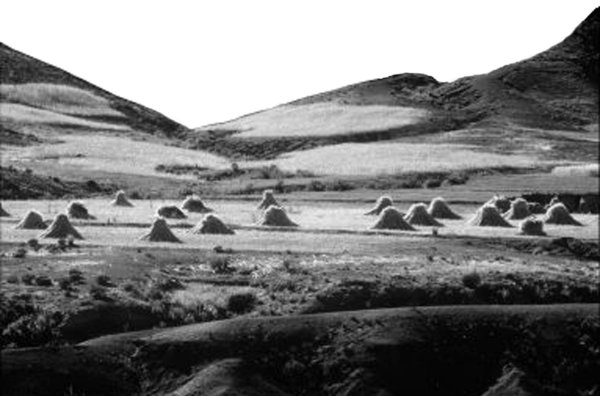


A number of FAO divisions, including the Policy Assistance Division, the Agriculture and Economic Development Analysis Division and the Commodities and Trade Division, have extensive experience in advising countries on agricultural sector and commodity policy. In general their activities include assisting with integrating trade policy into an overall agricultural policy; assessing the implications of the provisions of the bilateral and multilateral policy reforms for world prices, production, consumption and trade in agricultural commodities; and identifying options available for modifying developing countries' trade and domestic policies so that they are compatible with multilateral commitments under the Agreement on Agriculture.
FAO technical assistance in relation to the Agreement on Agriculture falls into two main categories. The first, commodity market assessments and analyses of special issues, especially those of interest to developing countries, includes:
Food and agricultural policy options for developing countriesProduction, consumption and stabilization policies are the three main options available to developing countries for supporting domestic food and agricultural production in a way that is consistent with their commitments under the Agreement on Agriculture. For production policies, there are two broad instruments available to a country wishing to promote domestic production, namely maintaining tariff levels within the bounds of its commitment under WTO's border measures and providing price and non-price support to farmers within the bounds of its commitment to WTO's domestic support measures. In combination, these instruments allow a considerable degree of flexibility in a country's support to domestic production. In the case of consumption, the Agreement on Agriculture is relatively permissive regarding policies that are aimed at supporting consumers, especially for developing countries. It allows them to provide foodstuffs at subsidized prices with the objective of meeting food requirements of urban and rural poor in developing countries on a regular basis and at reasonable prices. In some circumstances there is a need to reconcile producer and consumer options. Regarding stabilization policies, developing countries are concerned about the effect that a more open trade regime might have on domestic price stability, especially that of sensitive food commodities. The Agreement on Agriculture and general WTO provisions contain a number of options that a developing country may use to mitigate against the full brunt of market instability originating outside its borders. These options include the special safeguards clause of the Agreement on Agriculture (available to countries that followed the tariffication procedure and reserved their right to use this special clause), the variation of tariffs within set bounds, general WTO safeguards, the use of food security stocks, the introduction of export prohibitions under certain circumstances and the use of risk management instruments. FAO provides advice and guidance to develo ping countries on the adoption and implementation of the foregoing options in the context of their national food and agricultural policies. |
The second category, assessments of the Agreement's implications for trade and domestic food and agricultural policies (on occasions undertaken in collaboration with the World Bank, WTO and regional organizations), includes:
FAO technical assistance in food and agricultural policy is being delivered at global, regional and country levels.
A manual entitled The implications of the Uruguay Agreement on Agriculture for developing countries has been prepared for training purposes. Workshops on a variety of Uruguay Round-related subjects, some of a policy nature and some product-specific, have been conducted for all regions (Asia and the Pacific, Africa, Latin America and the Caribbean and the Near East and North Africa). Training courses have been and are being conducted and round-table discussions have been organized in several countries, including Bangladesh, Ethiopia, India, Nepal, Pakistan, the Sudan, the Syrian Arab Republic, Yemen and Zambia.
Forestry and the Agreement on AgricultureMost forest products were addressed as industrial products in the Uruguay Round negotiations and are therefore not covered by the Agreement on Agriculture. However, in addition to wood products, forestry is concerned with non-wood forest products such as rattan, mushrooms, spices, colourings, gums, sago, fruits, nuts and medicinal plants, many of which enter trade under categories covered by agricultural and food products. Certain forest products, therefore, relate directly to the Agreement on Agriculture and its provisions. |
Much of the assistance being provided to least-developed and net food-importing developing countries was also being given before the Marrakesh Agreement.
While FAO has done much to increase its member countries' awareness of the new policy framework introduced by the Uruguay Round, more assistance needs to be given, and indeed is being sought. It is apparent that, in the future, developing countries in particular will require assistance in building and strengthening their capacities to analyse policy options, monitor developments in the world trading system, integrate trade issues in domestic policy formulation and assess the relationship between the multilateral trading system and their commitments to regional trading arrangements.
Fisheries and the Agreement on AgricultureFish and fishery products had initially been discussed in the group of natural resource-based products and were later addressed as agricultural products. However, since it was not possible to reach a compromise between certain divergent negotiating positions, to avoid jeopardizing the conclusion of the Agreement on Agriculture, fish and fishery products were excluded from this Agreement. Nevertheless, FAO provides technical assistance and information on international trade in fish and fishery products, including regular assessments of the market situation and outlook for main fishery commodities as well as analyses of pertinent issues. The implications and impact of the Uruguay Round Agreements that are relevant for fisheries have been the subject of several regional seminars and workshops organized by FAO and they are duly taken into account in the Organization's country policy assistance in the fisheries sector. |
